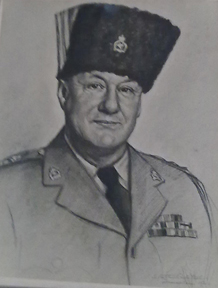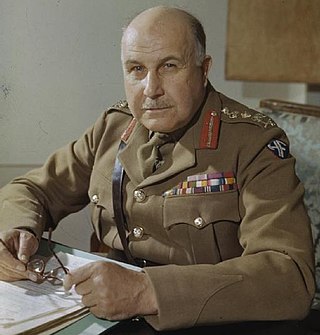
Field Marshal Henry Maitland Wilson, 1st Baron Wilson,, also known as Jumbo Wilson, was a senior British Army officer of the 20th century. He saw active service in the Second Boer War and then during the First World War on the Somme and at Passchendaele. During the Second World War he served as General Officer Commanding-in-Chief (GOC-in-C) British Troops in Egypt, in which role he launched Operation Compass, attacking Italian forces with considerable success, in December 1940. He went on to be Military Governor of Cyrenaica in February 1941, commanding a Commonwealth expeditionary force to Greece in April 1941 and General Officer Commanding (GOC) British Forces in Palestine and Trans-Jordan in May 1941.

General Sir Richard Nugent O'Connor, was a senior British Army officer who fought in both the First and Second World Wars, and commanded the Western Desert Force in the early years of the Second World War. He was the field commander for Operation Compass, in which his forces destroyed a much larger Italian army – a victory which nearly drove the Axis from Africa, and in turn, led Adolf Hitler to send the Afrika Korps under Erwin Rommel to try to reverse the situation. O'Connor was captured by a German reconnaissance patrol during the night of 7 April 1941 and spent over two years in an Italian prisoner of war camp. He eventually escaped after the fall of Mussolini in the autumn of 1943. In 1944 he commanded VIII Corps in the Battle of Normandy and later during Operation Market Garden. In 1945 he was General Officer in Command of the Eastern Command in India and then, in the closing days of British rule in the subcontinent, he headed Northern Command. His final job in the army was Adjutant-General to the Forces in London, in charge of the British Army's administration, personnel and organisation.
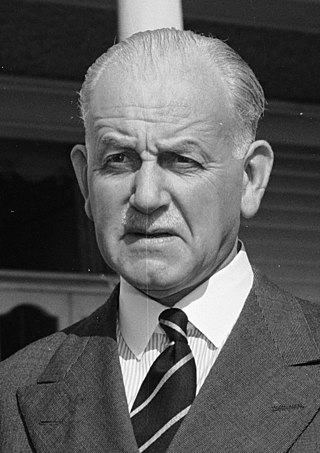
Lieutenant-General Charles Willoughby Moke Norrie, 1st Baron Norrie,, was a senior officer of the British Army who fought in both World Wars, following which he served terms as Governor of South Australia and the eighth Governor-General of New Zealand.

General Sir John Tredinnick Crocker, was a senior British Army officer who fought in both world wars. He served as both a private soldier and a junior officer in the First World War. During the Second World War he served as a distinguished brigade, division and corps commander, where his most notable role was as General Officer Commanding (GOC) of I Corps during the D-Day landings on 6 June 1944, leading the corps throughout the subsequent campaign in Western Europe until Victory in Europe Day (VE-Day) just over eleven months later.
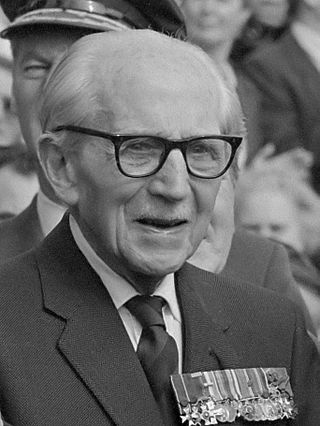
Major-General Sir Allan Henry Shafto Adair, 6th Baronet, was a senior officer of the British Army who served in both World wars; as a company commander in the Grenadier Guards in the First World War, and as General Officer Commanding of the Guards Armoured Division in the Second World War.
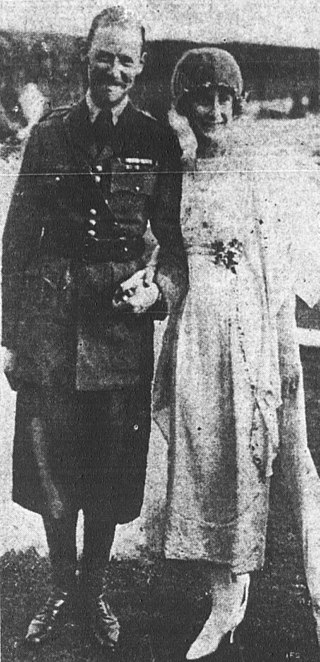
Major-General Sir John Charles Oakes Marriott, was a senior British Army officer who served during the First World War and again in the Second World War.
Major General Sir Rohan Delacombe, was a senior British Army officer. He was the last British Governor of Victoria, Australia from 1963 to 1974.
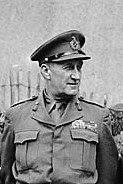
General Sir Lashmer Gordon Whistler,, known as "Bolo", was a British Army officer who served in both the world wars. A junior officer during the First World War, during the Second World War he achieved senior rank serving with Field Marshal Sir Bernard Montgomery in North Africa and North-western Europe from 1942 to 1945. Montgomery considered that Whistler "was about the best infantry brigade commander I knew". In peacetime, his outstanding powers of leadership were shown in a series of roles in the decolonisation process, and he reached the four-star rank of a full general, without having attended the Staff College, Camberley, then considered almost essential for an officer wishing to attain high rank, and which a significant majority of the British generals of the war had attended. This, in Richard Mead's words, was, "proof that lacking a Staff College qualification was no barrier to advancement for the right man."
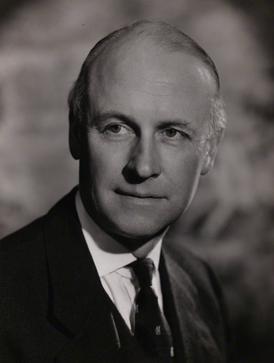
Lieutenant General Sir Ian Henry Freeland was a senior British Army officer, who served with distinction during World War II and most notably served as General Officer Commanding (GOC) and Director of Operations in security matters in Northern Ireland in the aftermath of rioting in 1969, and the beginning of the Troubles.

General Sir George Watkin Eben James Erskine, was a British Army officer from Hascombe, Surrey. After he graduated from Royal Military College, Sandhurst, Erskine was commissioned into the King's Royal Rifle Corps and saw action on the Western Front of the First World War. During the Second World War, he commanded the 7th Armoured Division from 1943 to 1944. Erksine later commanded counterinsurgency operations against the Kenya Land and Freedom Army (KLFA) during the Mau Mau rebellion.
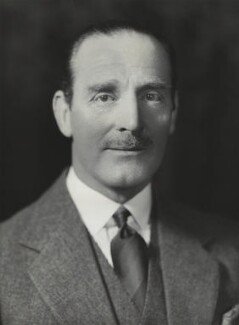
Lieutenant-General Sir Thomas Ralph Eastwood, was a senior British Army officer who notably served as Governor of Gibraltar towards the end of the Second World War.
General Sir Thomas Cecil Hook Pearson, was a senior officer of the British Army who served as Commander-in-Chief of Allied Forces Northern Europe from 1972 to 1974. At the time of his death, he was the oldest living British full general.
Lieutenant General Sir Euan Alfred Bews Miller, was a senior British Army officer who fought in both world wars and later went on to be Military Secretary.
Major General Sir George Frederick Johnson, was a senior British Army officer who fought in the Second World War and was Major-General commanding the Household Brigade and General Officer Commanding London District.
Raymond Briggs was a senior British Army officer who fought in both the First and the Second World Wars. During the latter he led the 1st Armoured Division at the Second Battle of El Alamein in late 1942, and throughout the subsequent Tunisian campaign.

Ampton Hall is a Grade II-listed Jacobean style manor house in Ampton, Suffolk, England.
Lieutenant-General Sir Charles Alexander Campbell Godwin was a cavalry officer in the British Indian Army.
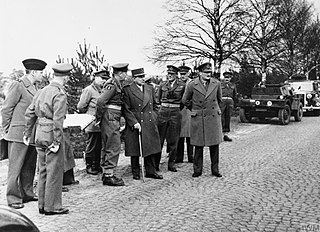
Brigadier Frederick Stephens was a British Army officer of the Second World War.
Major-General George Warren Richards (1898–1978) was a British Army officer.
Brigadier Thomas James Bolle Bosvile, was a British Army officer who served as acting General Officer Commanding 1st Armoured Division during the Second World War.
